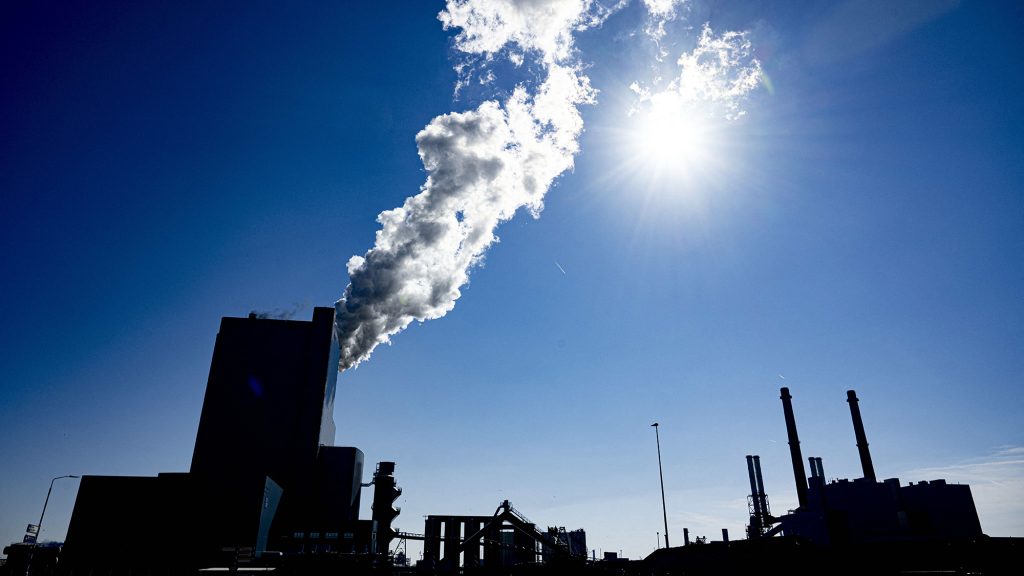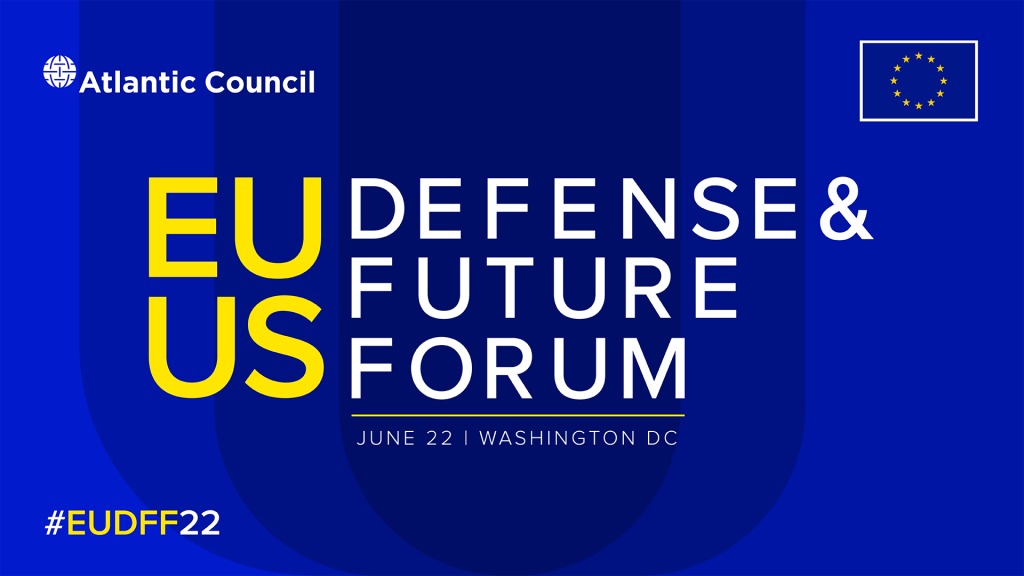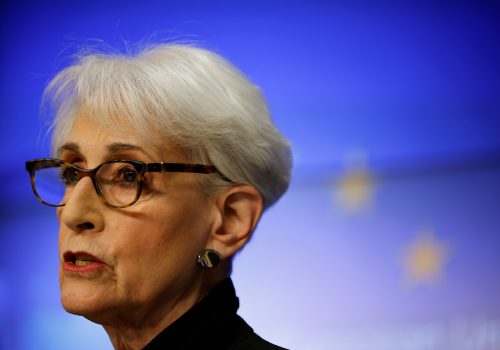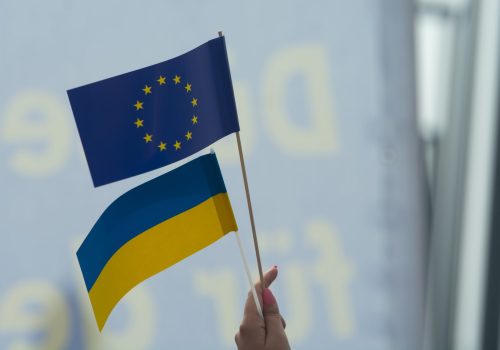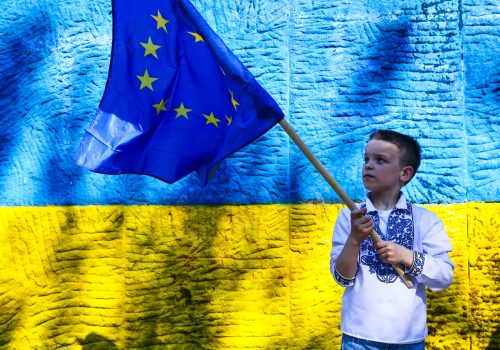Watch the full event
As war has gripped the European continent, debates around energy security and the green transition have become inextricably linked to the conflict zone. “What we have to deal with is not just a regular crisis,” warned Polish Secretary of State Piotr Naimski. “If we admit that we are in [a] war, the consequences are very clear: War is costly.”
Moscow loomed over Wednesday’s discussion at the Atlantic Council’s EU-US Defense & Future Forum in Washington. “I’ll start off with some brutal remarks,” said Daniel Fried, Weiser family distinguished fellow at the Atlantic Council and former US ambassador to Poland. “Vladimir Putin is using energy as a weapon to advance his war in Ukraine. And those in Europe and the United States who thought that an energy security threat from Russia had nothing to do with them discovered their error.”
Russia has already cut off energy to Poland and Bulgaria, after the European Union (EU) member states refused to pay for its natural gas in rubles. And energy has been a critical component of the Western response to hostility from Moscow, such as the $316 billion “REPowerEU” plan to break Europe’s reliance on Russian energy by 2030.
However, Europe cannot achieve energy independence on its own. It will take a transatlantic effort, as outlined by Naimski and fellow panelists Ditte Juul Jørgensen, the European Commission’s director-general for energy; and Melanie Nakagawa, the senior director for climate and energy at the White House National Security Council.
Below are some of the insights they gave into the unique challenges and solutions Europe faces in securing its energy independence, in a conversation moderated by Emily Meredith, the deputy Washington bureau chief for Energy Intelligence:
Battlefield decisions
- Naimski said that Poland was relatively prepared for this energy crisis, thanks to forward-thinking measures to secure its oil reserves and energy infrastructure that began in 2016. But he insisted that Ukraine shouldn’t be seen as the only “battlefield” of Russian aggression. Energy “is used against us. It is used against European companies. And it affects us globally,” he said. “We have to be prepared to pay.”
- European leaders have shown a willingness to take on that cost, particularly with the EU’s decision to implement a phased ban on Russian oil—a significant step, considering that Moscow has previously supplied about 27 percent of the continent’s imported oil and 40 percent of its gas. Breaking free of Russian energy will take a three-part approach, Juul Jørgensen said: energy savings, renewable energy, and diversifying energy supplies.
- Transatlantic collaboration will play a key role in that third part. US exports of liquefied natural gas (LNG) to Europe tripled from last year to the early months of 2022, with the Biden administration vowing to give such exports a boost. “It’s such a different time,” Nakagawa said. “Europe had a supplier of this fuel, and now they don’t.”
A question of priorities
- The crisis has created a challenging balancing act between Europe’s urgent short-term energy needs and its long-term sustainability goals. Imminent dangers posed by the upcoming winter must be prioritized, Naimski said, noting that Denmark and other nations are already forecasting gas supply constraints. Establishing more LNG terminals and other energy infrastructure could take a few years, he said, while a true green transition is still decades away.
- Nakagawa noted that there are opportunities to work on short and long-term goals simultaneously. She pointed to the Biden administration’s decision in March to release up to 180 million barrels from American reserves to help relieve some of the short-term price spikes caused by the war in Ukraine—followed by using Defense Production Act powers to spur the mining of critical minerals to produce more batteries for electric vehicles. “It’s not just producing more. It’s also transitioning to the technologies that help us use less,” Nakagawa said.
- The European Commission recently created an Energy Purchase Platform for joint purchasing of gas, LNG, and hydrogen. Juul Jørgensen said only about 60 percent of European energy capacity was filled in past years, suggesting collaboration could maximize efficiency and reduce costs. However, Naimski was skeptical that the EU could avoid an intracontinental energy arms race that would undermine collective purchasing: “The competition among European companies, European states, is deeper and deeper. There is a competition for everything.”
Watching for the butterfly effect
- US economic sanctions, coupled with military and humanitarian assistance, have been crafted “to strengthen Ukraine while weakening Russia,” Nakagawa said. However, the White House is also trying to avoid raising global energy prices so much that the sanctions create the “perverse effect of padding Putin’s pocket,” Nakagawa said.
- Any sanctions “need practicalities,” Naimski said. “But having said that, I think the most strict sanctions against Russia today, the better future for us, for Ukraine, for Europe, for all democracies.” Historians, he believes, will one day refer to these days as the second Cold War. “We are entering a very dangerous time.”
Nick Fouriezos is an Atlanta-based writer with bylines from every US state and six continents. Follow him on Twitter @nick4iezos.
Watch the full event
Further reading
Wed, Jun 22, 2022
Wendy Sherman and Stefano Sannino on Ukrainian EU membership, Russian escalation, and Chinese technology
Transcript By
US Deputy Secretary of State Sherman and European External Action Service Secretary-General Sannino joined the Atlantic Council to talk about the transatlantic relationship and the roles of the European Union and United States in addressing the world's challenges.
Tue, Jun 21, 2022
What would EU candidate status mean for Ukraine?
UkraineAlert By Peter Dickinson
Ukrainians expect the country to be granted official EU candidate nation status at this week's summit of European leaders but what would this mean for Ukraine's broader ambitions for greater Euro-Atlantic integration?
Sun, Jun 19, 2022
EU candidate status for Ukraine is the ideal response to Russian aggression
UkraineAlert By Diane Francis
European Union leaders must decide this week whether to grant Ukraine official EU candidate nation status. This is a critically important moment for Ukrainians that will also shape the future direction of the entire continent.
Image: A view of the Uniper Maasvlakte power plant coal-fired power station in Rotterdam, Netherlands, on June 22, 2022. Photo by Robin Utrecht/ABACAPRESS.COM.
